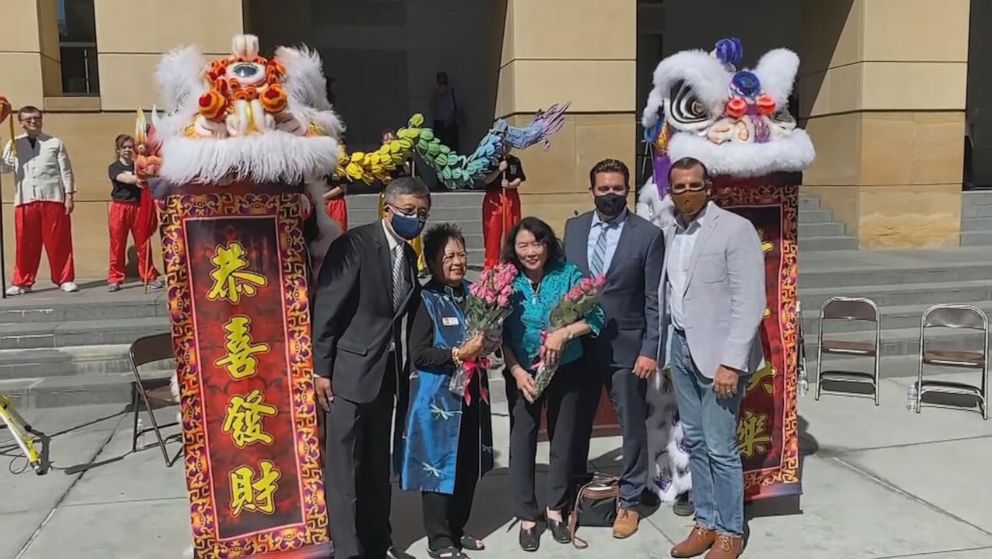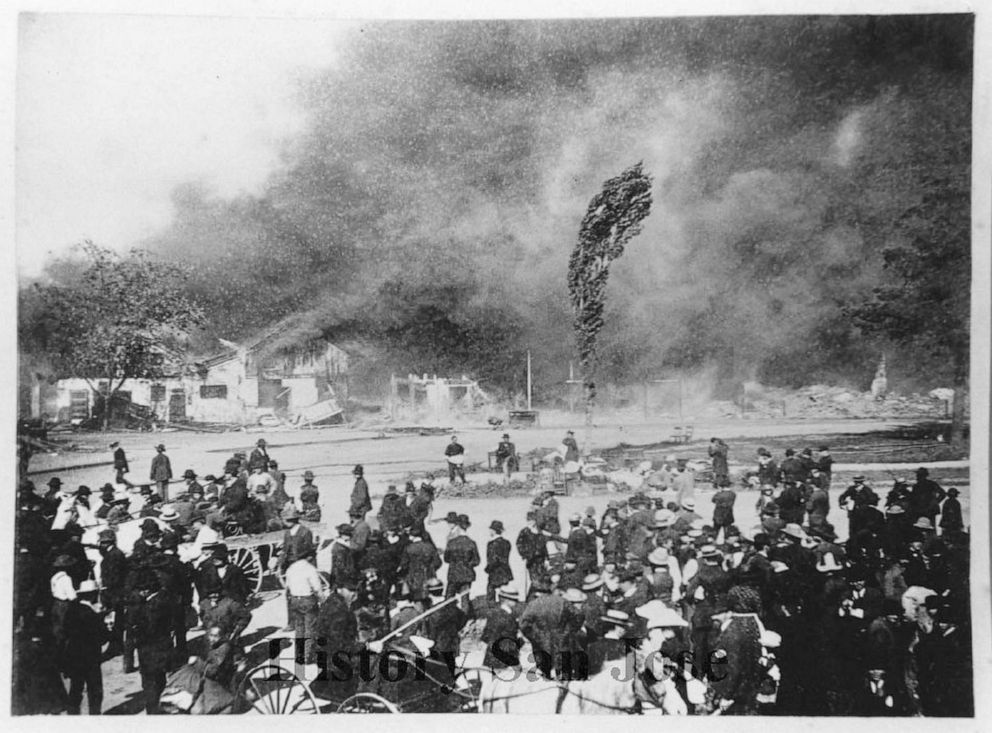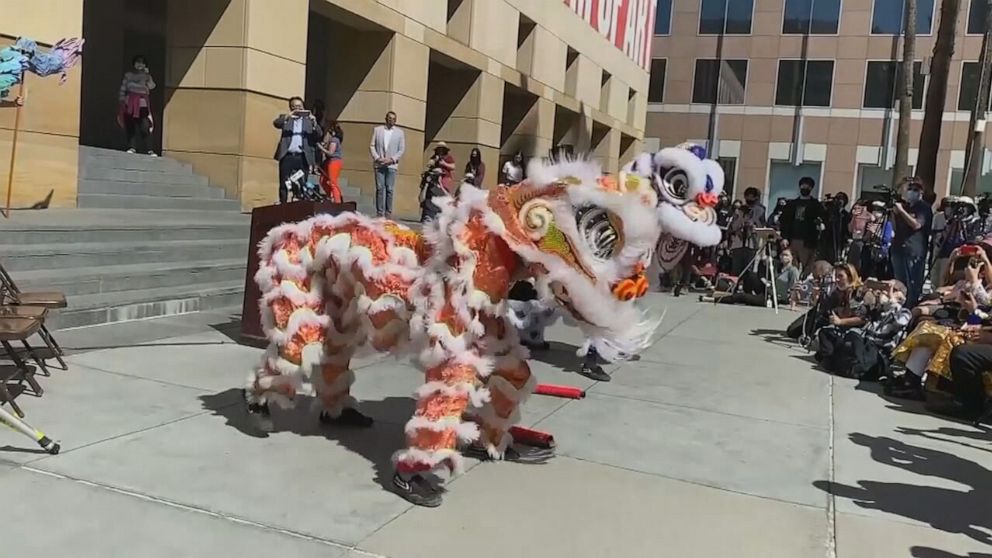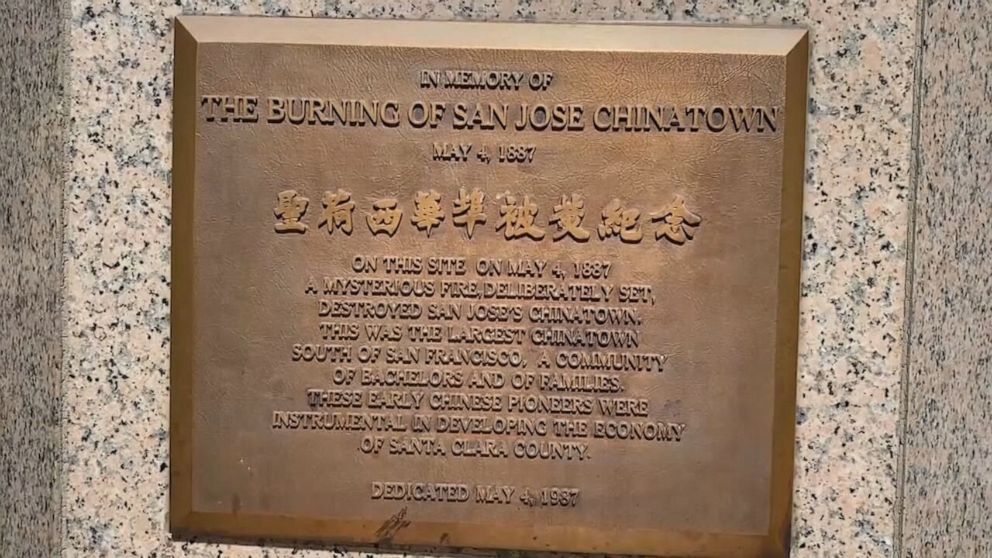San Jose apologizes to Chinese American community for 'a century of discriminatory actions'
A descendant of a survivor of the 1887 Chinatown arson said this brings "peace."
San Jose officially apologized to its Chinese American community for being complicit in a "a century of discriminatory actions" via a city council resolution that comes more than a century after arson eviscerated the city's once-thriving Chinatown.
The public apology also comes as biases related to the COVID-19 pandemic's suspected origins in Wuhan, China, have led to a surge in anti-Asian hate incidents throughout the U.S.

San Jose was once home to five Chinatowns established by immigrants arriving in the late 1800s, according to a memorandum posted to the city's website that acknowledges the "virulent, systematic racism, xenophobia" and "violence" endured by these early Asian American communities. One of the most well-known of San Jose's Chinatowns that began on Market Street succumbed to arson in 1887 after the city council at the time declared the site a public nuisance and ordered it removed to make way for the construction of a new city hall.
The blaze destroyed homes and businesses and displaced some 1,400 people -- including the teenage grandfather of Connie Young Yu, a local historian and author of "Chinatown, San Jose, USA."
Yu called the apology an "act of grace" in a statement Thursday.
"As a descendant of a Chinese worker driven out of Market St. Chinatown by an arson fire, I feel peace," she added. "We are now all part of the same community, recognizing the past, only to go forward together."
Yu told ABC News last week, ahead of the official apology, that her father was born in the new San Jose Chinatown.
She added that the apology "comes very late, but it is deeply meaningful for the Chinese American community and symbolically offers peace and reconciliation."
"The apology recognizes the hardships and struggles of our ancestors by the Chinese Exclusion Act which deprived Chinese naturalization to U.S. citizenship, inciting cities to drive out the Chinese by outlaw violence or legal methods," she added.

City officials and members of the Asian American community in San Jose held a ceremony at the Circle of Palms Plaza -- on the site of the burned-down Market Street Chinatown -- on Wednesday to mark the historic resolution.

Gerrye Kee Wong, a co-founder of the local nonprofit group Chinese Historical and Cultural Project, is a fourth-generation Chinese American who's lived in San Jose since the 1930s.
In a statement, he said it was "a gratifying moment to see the City of San Jose acknowledging past wrongs against its Chinese citizens with this resolution to make it right today and into the future."
The city's resolution also acknowledges the persistent impact of centuries of racist policy, stating that "the recent rise in anti-Asian violence and racial discrimination demonstrates that xenophobia remains deeply rooted in our society" and that Asian Americans "are still considered perpetual foreigners."
It calls for the story of Chinese immigrants "and the dehumanizing atrocities committed against them in the 19th and early 20th century" to not be purged from the city's history.

Despite the vast economic contributions of Chinese immigrants, California's history is scarred by a legacy of unequal treatment toward them. Officials in neighboring Antioch, California, apologized for past atrocities endured by Chinese Americans earlier this year as pandemic-related hate incidents targeting Asian Americans surged. In Antioch, Chinese American communities built tunnels underground because they were not allowed to walk the streets at night, and the city's Chinatown also was burned by arsonists in 1867.
San Jose Mayor Sam Liccardo said in a statement Thursday that with each new generation "we must reemphasize our commitment to justice and renew our contrition, not just for these failings but for all acts of disrespect and violence against our Black, Latino, Indigenous, and AAPI community members."
"This reconciliation acknowledges the mistakes of our city's past," Liccardo added, "and serves as a reminder to continue striving for an inclusive society."




